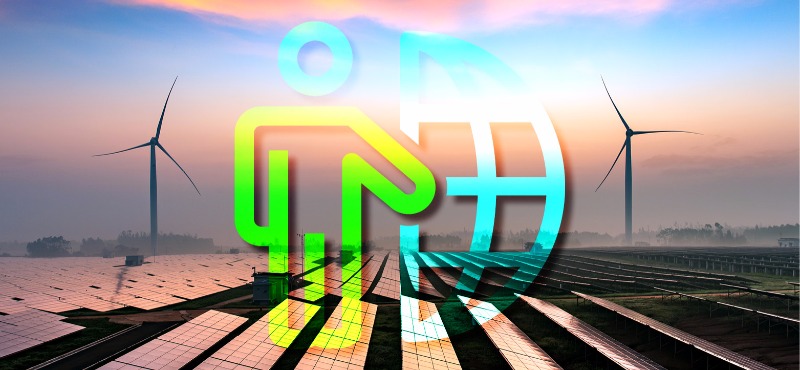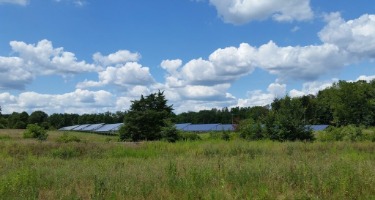One of the hottest areas in the energy sector has been renewable energy development. Producers have found ways to increase efficiency for renewable energy production, prices for equipment continue to fall, and state and federal incentives continue to bolster the burgeoning industry. Even the recent decision by the Trump Administration to withdraw from the Paris Accord has done little to slow the development of renewable energy projects.
Spurred by the environmental movement, global investment in renewable energy went from approximately $88.0 billion in 2005 to $348.5 billion in 2015, nearly a four-fold increase, according to Bloomberg New Energy Finance. However, as this expansion was occurring, environmentalists and others began to take a harder look at renewable energy projects.
Until recently, traditional renewable energy projects, such as wind and solar farms, were generally thought to be benign uses of the land on which they were located. Such projects do not require fossil fuels to be pumped onto the site, they have no emissions to air or water, and they do not generate nuclear or hazardous waste. Limited impacts to wildlife associated with such projects, mostly in terms of lost habitat or bird mortality, were acknowledged. However, those impacts, it was argued, paled in comparison to the impacts of pollution, waste, and greenhouse gas emissions that were the byproducts of conventional electricity generation.
The opinion about those impacts changed as land use considerations were taken into account. One of the keys to successful renewable energy development is to have the project built to “grid scale” (large enough to make a significant impact on energy demands). When projects are sufficiently large, they can take advantage of economies of scale and become cheaper on a per unit basis. The size of such projects, however, has led to increasing concern about the projects’ impact to the land.
Solar projects can use up to seven times as much acreage as conventional power projects with similar generation capacity, and wind projects can be as much as 45 times the acreage of conventional projects.
In spite of such goals, several states have responded to pressure from environmental groups to limit the siting of renewable energy projects. These states are taking different approaches to address the issue. Some states, such as Washington, North Carolina, and Connecticut, have placed restrictions on where renewable energy projects can be located. Other states, such as Massachusetts, are opting to increase incentives to renewable energy projects that are located in areas with undesirable land uses, such as brownfield sites and closed landfills. Still other states, such as Maryland and Minnesota, are evaluating what should be done with respect to the siting of renewable energy projects.
Connecticut’s experience in this area is illustrative. The development of energy projects, whether renewable or conventional, is regulated by the state’s Siting Council. The council evaluates the potential environmental impacts associated with energy developments and approves or denies projects based, in part, on whether such projects adversely impact the environment.
Until 2011, all renewable energy projects in Connecticut, along with certain smaller, more traditional energy projects, were able to take advantage of expedited processing of their approval requests. While a thorough environmental review was still required, that review was done on a more expedited basis. In 2011, however, in response to complaints about a series of applications for wind farms in Connecticut, the Connecticut Legislature placed a ban on future wind development until the Connecticut Siting Council could develop specific regulations that significantly curtailed the number of sites available for wind development in Connecticut.
Facing a call for a moratorium on large-scale solar development from the Connecticut Council on Environmental Quality, in 2017, the Connecticut Legislature again acted to limit the ability of renewable energy projects to be placed on certain farmlands and wooded areas. The interesting side effect of this new legislation is that it is now easier to site a conventional power plant in Connecticut than many renewable energy projects.
These renewable projects can still be sited, and they will need to be in order for Connecticut to meet its renewable energy goals. What remains to be seen is what the cost of such additional permitting will do to the renewable energy market. What also remains to be seen is how many states will follow the lead of Connecticut and others and begin to take a harder look at the permitting of renewable energy facilities.
-------------------------
Lee D. Hoffman is chair of Pullman & Comley’s environmental, energy, and telecommunications department and is a member of the firm’s executive committee. Lee works with clients to develop conventional and renewable energy projects and advises clients in the areas of project development and financing, permitting, environmental law, and energy and utility matters. He can be reached at lhoffman@pullcom.com.




















